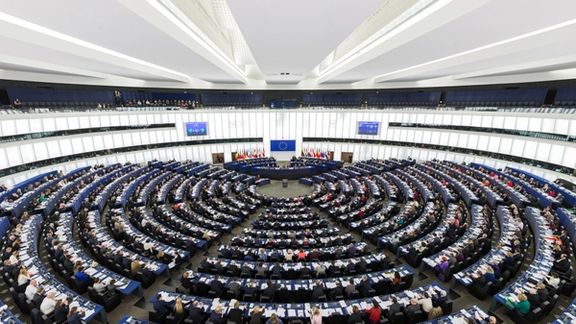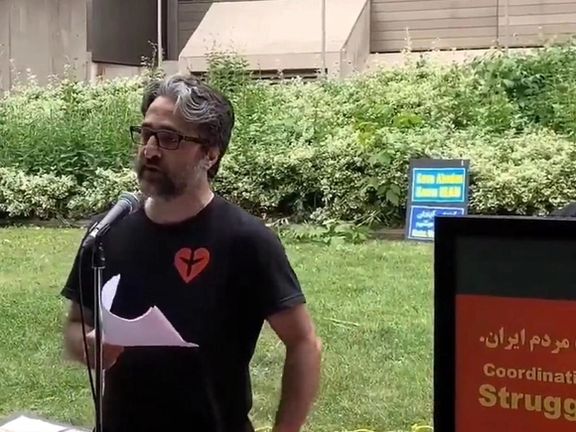European Parliament Holds Session To Find Ways To Support Iran Protests

The European Parliament is holding a three-day event in solidarity with the Iranian people in their struggle against the Islamic Republic for freedom and democracy.

The European Parliament is holding a three-day event in solidarity with the Iranian people in their struggle against the Islamic Republic for freedom and democracy.
The first day of the European Parliament Solidarity Days was held on Tuesday jointly by the Subcommittee on Human Rights and the Committee on Foreign Affairs in coordination with the European Parliament's Delegation for Relations with Iran to exchange views on "How to support Human Rights, Freedom and Democracy in Iran".
Udo Bullmann, Chair of the Subcommittee on Human Rights, said during the session, “We stand in full solidarity with the courageous people of Iran who risk their lives by taking the streets and speaking out for freedom and justice again, and again and again. We must not and will not let them down. Tyranny will not win. We stand up for dignity, democracy and human rights, we stand with the people of Iran.”
European lawmakers say the event’s objective is to explore ways to support human rights, women, and civil society in Iran with a large spectrum of Iranian guest speakers, and to reflect on challenges and prospects for Iran's democratic movement. However, the list of the speakers on the first day drew controversial reactions online as some of the participants were labeled as regime apologists by some social media users.
Women's rights activist and writer Mansoureh Shojaee, journalist Mahdieh Golroo, Sociology of Gender Researcher Fatameh Karimi, and former political prisoner Sattar Rahmani as well as Ardeshir Amirarjomand, a senior advisor to dissident former prime minister Mir-Hossein Mousavi – were some of the speakers.

Also among the participants was Canada-based opposition figure Hamed Esmaeilion, whose recent resignation from the Alliance for Freedom and Democracy in Iran has sparked bitter arguments between constitutional monarchists and his supporters.
He told Iran International after the session that he focused his remarks on how to help “the Iranian revolution” on three main topics: providing uncensored internet, helping the affected families and protesters – free or detained -- inside the country, and setting up a fund to support striking workers.
He added that the designation of Iran’s Revolutionary Guards as a terrorist organization was also among the topics discussed during the session. Blacklisting the IRGC has been one of the main demands of the Iranian opposition as it is the regime’s hand in cracking down on dissent inside the country and handling Tehran’s proxy wars across the region.
One of the main hosts of the event is Cornelia Ernst, the chair of the European Parliament's Delegation for Relations with Iran, which has maintained a regular dialogue with the Islamic Republic’s parliament and its mandate is to further promote dialogue and “mutual understanding” with the Iranian parliament. Such a mandate seems to be against the Women, Life, Liberty movement, which has engulfed Iran since September 2022, when the death in custody of Mahsa Amini sparked the protests against the regime.
However, Ernst voiced opposition sanctioning the IRGC, expressing concerns that the designation would cut off relations and dialogue with the Islamic Republic and may pave the way for the regime to become another North Korea, which the European Union does not want.
Hanna Neumann, the representative of Germany in the European Parliament who has been very active in supporting the Iranian protest movement especially since September 2022, also spoke during the session. She said the protests and the ensuing crackdown have shed light on the atrocities of the regime.
“Thanks to the protests, everyone knows now how brutal this regime is, how it is beating, raping, executing its own people,” she said, noting that “it is quite clear that the regime is impossible to reform and that it is a big threat to its own people, to the region and to the world as a whole.”
Other MEPs also called for the freedom of hundreds of political prisoners, especially women, marginalized minorities, and torture survivors.
They also reiterated their call for the EU to add the IRGC to its list of terrorist organizations, three months after a plenary resolution adopted on January 19, 2023.